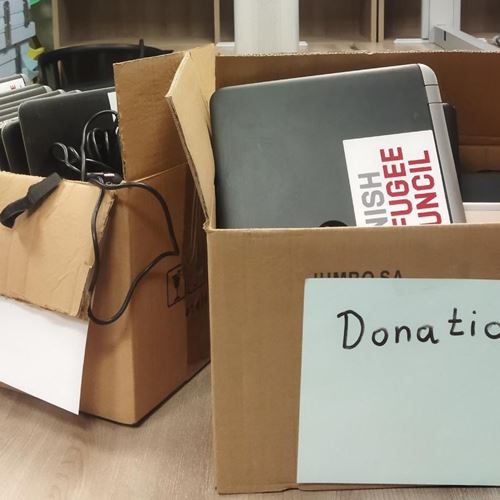In March 2023, the first batch of 24 laptops were handed over by DRC in Greece to the local initiative Epanekkinisis, an organisation based in Athens from where they work to set up cafés and offer different types of IT repairs.
The recent years and especially with the Covid-19 pandemic, has seen new importance and aspects of how the use of digital technologies is transforming lives across society. Much has moved online, including education of children. Although children are increasingly familiar with information technology, a digital gap is evident when it comes to accessing education for refugee children and children living in remote areas of Greece, where schools are not always properly equipped.
‘We see a unique opportunity in working with digital literacy and our recent collaboration with an organisation such as Epanekkinisis is an example of serving many purposes. It allows for both supporting circular economy, invest in repair of IT as well as delivering these repaired laptops and other digital items where they are needed among refugee children and other children in need,’ says Christina Papatheodorou, DRC Country Director in Greece.
In addition to providing better access to IT equipment, DRC teams delivers non-formal education activities to refugee children in 10 sites across Greece hosting migrants, refugees and asylum seekers as well as in two urban settings. The activities include IT and topics within science, technology, education and mathematics, also known as STEM - to increase digital literacy, and to promote teamwork and problem solving. Students of STEM classes got the opportunity to attend a repair café, meet other students and work together on recycling and repairing old devices that one day will be donated to a school or a child in need.
These activities are part of the All Children in Education (ACE) programme – a UNICEF initiative, co-funded by the European Union and implemented by several partners, including DRC.
